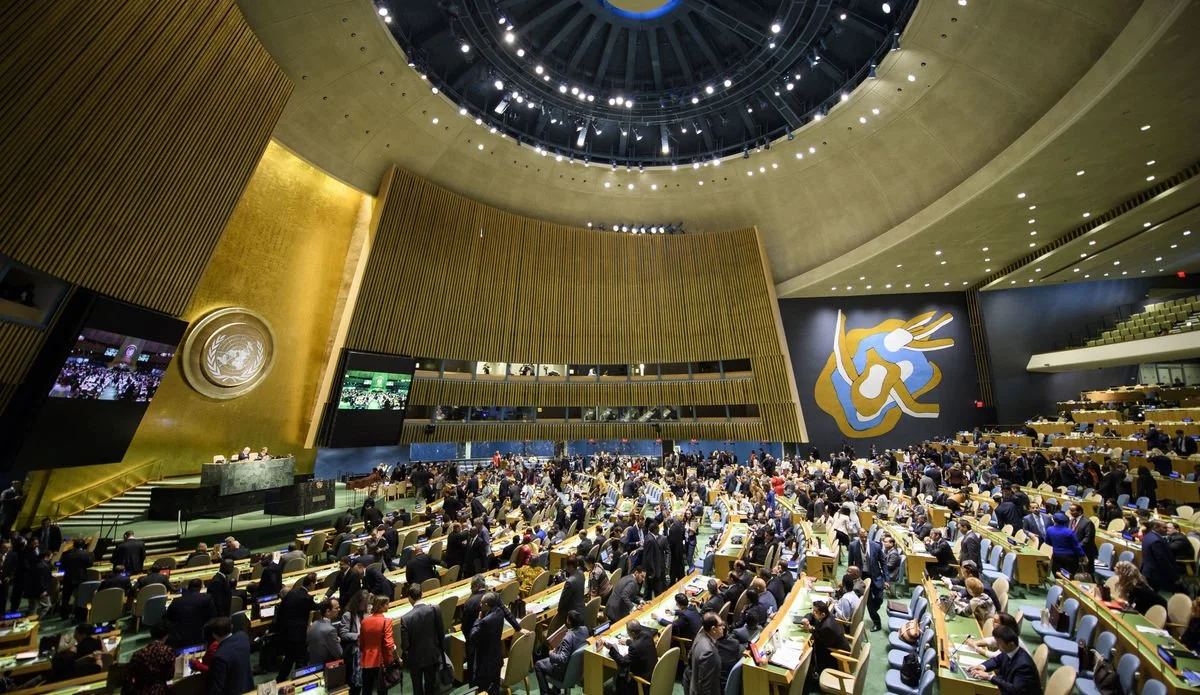African leaders call for greater global equity at the UN General Assembly
Over the last two weeks, global leaders gathered in New York for the 77th United Nations General Assembly under the theme, “"A watershed moment: transformative solutions to interlocking challenges". African leaders took the opportunity to highlight that the continent once again finds itself at the sharp end of these interlocking challenges and therefore must have seat at the table in outlining solutions. The combined challenges of the climate crisis and recovery from the Covid-19 pandemic, now stalled by the far-reaching impact of the Russia-Ukraine conflict and deep-seated instability in the global economy, have undermined the continent’s ability to meet the 2030 Sustainable Development Goals and the African Union’s Agenda 2063.
Speaking in New York, African leaders highlighted the need for the world to continue recovery support and acknowledged the particular economic challenge that supply chain disruption caused by the war in Ukraine poses for Africa. Newly elected Kenyan President William Ruto called “upon the World Bank, the International Monetary Fund and other multilateral lenders to extend pandemic related debt relief to the worst hit countries". Meanwhile Hakainde Hichilema, President of the Republic of Zambia said “as we stand with all those affected, both inside Ukraine and in the neighbouring countries, we also take this opportunity to stress the far-reaching negative consequences of this war, particularly on the increased price of food across the world, as well as fuel, fertilizer and other key commodities".
In 2020, African countries imported agricultural products worth USD 4 billion from Russia with 20% of this figure made up of wheat. A UN Development Programme report from May 2022 found that the war had all but halted supply grain and fertilizer imports to drought-stricken East Africa, exacerbating food insecurity and famine in the region. IMF data shows the impact of supply chain disruption on inflation as Africa now averages an inflation rate of over 12%, with food and fuel accounting for over one-third of the consumer price index across the continent. The severity of the threat to livelihoods across the continent accounts for the region’s reluctance to harden geopolitical fault lines with only 28 of 54 African countries voting in favour of a resolution condemning Russia’s invasion in March of this year.
The climate crisis was also high on the agenda both for governments and businesses meeting in side-lines of the Assembly. Despite contributing less than 4% of global green gas emissions, Africa is already bearing the brunt of the impacts of climate change. President Wavel Ramkalawan of the island nation of the Seychelles called on the global community “to confront the gross injustice of having citizens of States least responsible for the unravelling climate-induced disaster pay for the loss and damage caused by others” while President William Ruto stated that “we cannot afford to waste another moment debating the merits of doing something vis-à-vis doing nothing”.
For Africa however, the urgent need for climate action sits alongside a continued push for development progress by widening access to electricity and building industrialised economies. The president of the Democratic Republic of the Congo, Felix Tshisekedi, reminded delegates that “the Paris Agreement of 2015, recognizes the rights of developing countries to emit CO2 for the development of the country” while President Macky Sall suggested that “the continent that pollutes the least and lags furthest behind in the industrialisation process should exploit its available resources”.
Africa’s mineral resources have an essential role to play in the green transition, while many of the continent’s leaders have pushed for the role of natural gas in the region’s energy mix to support large-scale expansion of energy access. Speaking at Invest Africa and Standard Chartered Bank’s US-Africa Investment Forum alongside Dr. Monde Muyangwa, the recently appointed Head of USAID’s Africa Bureau, and Andrew Herscowitz, Chief Development Officer of the US Development Finance Corporation, the Africa Finance Corporation and the Development Bank of Southern Africa called for an expansion of US-Africa investment partnerships to develop these resources sustainably and to support a green transition. Samaila Zubairu, CEO of the Africa Finance Corporation outlined Africa’s significant contribution to carbon off-setting through its vast forests and called for greater investment in the region’s mineral processing capabilities to reduce shipping emissions as demand for green minerals grows. The scale of investment needed to plug Africa’s sustainable finance gap calls for the development of local financial institutions and capital markets, with support from international development finance to catalyse private investment.
Seeking transformative solutions to global challenges will only be possible through a partnerships-led approach with the African continent that recognises both the region’s unique circumstances and significant contributions to meeting objectives on global growth, climate change and stability. Amidst calls for African representation on the Security Council and G20, Macky Sall expressed that “Africa has suffered enough of the burden history” and now wants to represent “a pole of stability and opportunity open to all partners, on a mutually beneficial basis”. Or, as President Ruto put it, “it is time for multilateralism to reflect the voice of the farmers, represent the hopes of villagers, champion the aspirations of pastoralists, defend the rights of fisherfolk, express the dreams of traders, respect the wishes of workers, and indeed, protect the welfare of all people of the Global South."

